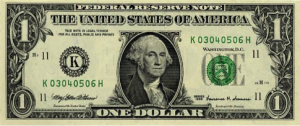The latest installment of Modern Money and Public Purpose is now online. This seminar explores the relationship between money and the legal formation of the modern liberal capitalist state, with a particular emphasis on the pre-Revolutionary and early United States. In contrast to conventional economic narratives that cast money as lubrication for existing forms of exchange, this event highlights the legal and political origins of our modern monetary system, and traces the influence of those forces on the shape of the modern economy.
You can view the video below or view at the Modern Money and Public Purpose Continue reading


 One of the strangest things to understand about Modern Money Theory is why, if government doesn’t need your tax dollars in order to spend, does government tax at all? Here is an attempt at a new and “better” explanation. It is based on the insight that the government DOES, in fact, need to collect taxes, but the “taxes” it collects are not your “tax dollars.” This may sound like gibberish, but stick with me a moment and see if the following doesn’t make sense—and cast a new light on OTHER things as well (like, for example, the “national debt”).
One of the strangest things to understand about Modern Money Theory is why, if government doesn’t need your tax dollars in order to spend, does government tax at all? Here is an attempt at a new and “better” explanation. It is based on the insight that the government DOES, in fact, need to collect taxes, but the “taxes” it collects are not your “tax dollars.” This may sound like gibberish, but stick with me a moment and see if the following doesn’t make sense—and cast a new light on OTHER things as well (like, for example, the “national debt”). FROM the latest cuts to the economic forecasts to the Italian elections to the gathering debate about how George Osborne should play this year’s Budget, all discussions about the financial system now lead swiftly back to the world’s sovereign debt problem. It towers over every effort to get back to prosperity, threatening to take decades at best before it can be resolved, very possibly with an almighty crash along the way.
FROM the latest cuts to the economic forecasts to the Italian elections to the gathering debate about how George Osborne should play this year’s Budget, all discussions about the financial system now lead swiftly back to the world’s sovereign debt problem. It towers over every effort to get back to prosperity, threatening to take decades at best before it can be resolved, very possibly with an almighty crash along the way.








